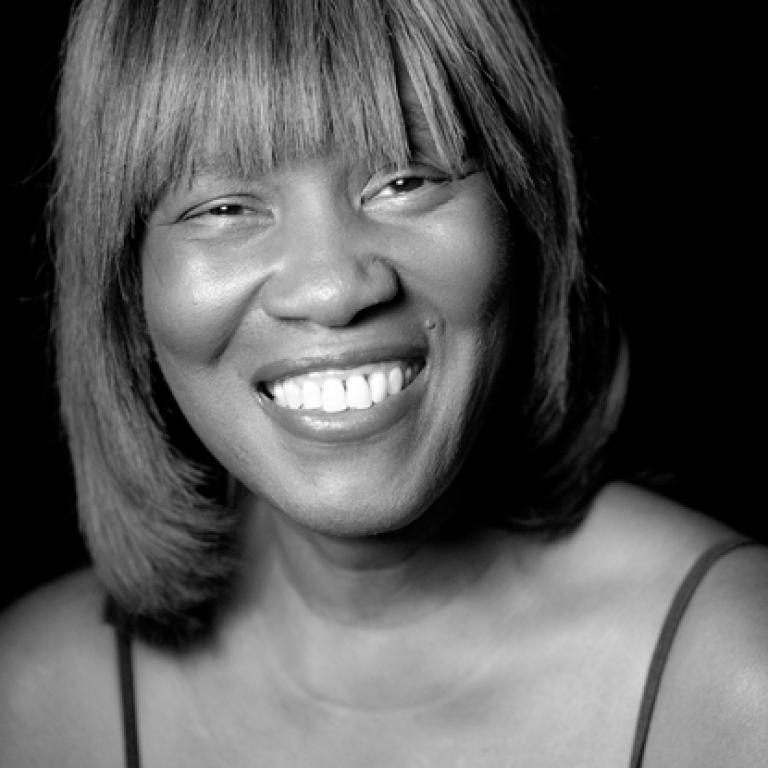Italicized excerpts are from an Aug. 31, 2005 e-mail from Marty Bahamonde to his boss Michael Brown, head of the Federal Emergency Management Agency. Bahamonde was one of the only FEMA employees in New Orleans at the time.
Aug. 31, 12:20 p.m. Re: New Orleans
Sir, I know that you know the situation is past critical. Here are some
things you might not know.
Rainbows warp when you curse them.
I have held a shiver of black child against my body.
The word river doesn’t know edges.
God wouldn’t do this.
There’s a Chevy growing in that tree.
Here, I am so starkly white.
Sometimes bullets make perfect sense.
Eventually the concrete will buckle.
They won’t stop screeching at me.
I have passed out all my gum.
So many people are thirsty.
A kid breathes wet against my thigh.
He calls me father.
Hotels are kicking people out…
No one is prepared for their sulking shadows.
They sully sleek halls, leave smudges on grand glass.
They double negative, sport clothes limp with ache.
These people don’t know this place,
this costly harbor where they have always pointed,
eyes bucked and overwhelmed,
giddy with the conjure of mirrored silver
and whole cups dedicated to tea.
In the sudden midst of glorious this,
they fill their cavernous pockets with faith.
Why didn’t we bolt the doors
before they began to dream?
thousands gathering in the streets with no food or water…
The weakened mob veers into the open for breath.
Ashy babies bellow, B-boys hurl gold-toothed [ ],
everyone asks for food. And the heat singes art
on bare backs, sucks tears from parched skin.
It’s true there is no food, but water is everywhere.
The demon has chapped their rusty ankles,
reddened the throats of babies, smashed homes to mist.
It is water that beats down without taking a breath
and points its dank mossy finger at their faith.
I have killed you, it patters.
I have bled you dry.
Hundreds still being rescued from homes.
Or not.
Death has an insistent iron smell, oversweet rot
loud enough to wither certain woods.
Behind sagging doors specters swirl,
grow huge-limbed, stink brilliance.
And up on the roofs of tombs,
sinking mothers claw the sky,
pray the rising river away from their scream.
The moon refuses to illuminate their overtures,
winking dim then winking shut.
From the papery peaks of three-flats,
shots and weeping in the starless dark.
If you listen, you can hear the dying.
It creaks odd and high,
a song slowly larger than the singer.
Evacuation in process. Plans developing for dome evacuation but hotel situation adding to problem. We are out of food and running out of water at the dome. Plans in works to address the critical need.
Stifle the stinking, shut down the cameras,
wave Dubya down from the sky.
Subtract the babies, unarm flailers,
Hose that wailing [ ] down!
Draw up a blueprint, consider detention,
throw them some cash from a bag.
Tell them it’s God, ply them with preachers,
padlock the rest of the map.
Hand them a voucher, fly in some Colonel,
twist the volume knob hard.
Turn down the TV, distract them with vision,
pull out your hammer and nail.
Sponge off their shoulders, suckle their children,
prop them upright for the lens.
Tolerate ranting, dazzle with card tricks,
pin flags on absent lapels.
Try not to breathe them, fan them with cardboard,
say that their houses will rise.
Play them some music, swear you hear engines,
drape their stooped bodies with beads.
Salute their resilience, tempt them with future,
surrender your shoes to the mud.
Promise them trailers, pass out complaint forms,
draft a law wearing their names.
Say help is coming, say help is coming,
then say that help’s running late.
Shrink from their clutches, lie to their faces,
explain how the levies grew thin.
Mop up the vomit, cringe at their crudeness,
audition their daughters for rape.
Stomp on their sleeping, outrun the gangsters,
pass out American flags.
DMAT staff working in deplorable conditions. The sooner we can get
the medical patients out, the sooner we can get them out.
Breathing bladed, blood tinged black,
their stark diseases mystify, ooze unbridled.
Heat stuns their grip on history,
so they keep attempting to walk back
into remembered days of weather
that never grew more difficult than rain.
They crave the reign of simple delta,
when skinned pig, peppered collards,
and a bottle of red heat signaled a day gone right.
So they keep trying to walk, to force their feet
into the now-obscenity of a straight line,
to begin with that first blessing—forward, forward,
not getting the joke of their paper shoes,
not knowing the sidewalks are gone.
Brown:
Thanks for update. Anything specific I need to do
or tweak?
Published:
2008
Length:
Regular
Literary Movements:
Contemporary
Anthology Years:
2023
Themes:
Agency
Politics
Violence & War
Womanhood
Literary Devices:
Alliteration
the repetition of the same letter or sound at the beginning of words appearing in succession
Allusion
an expression designed to call something to mind without mentioning it explicitly; an indirect or passing reference
Epigraph
a short quotation or saying at the beginning of a book or chapter, intended to suggest its theme
Metaphor
a comparison between two unrelated things through a shared characteristic

